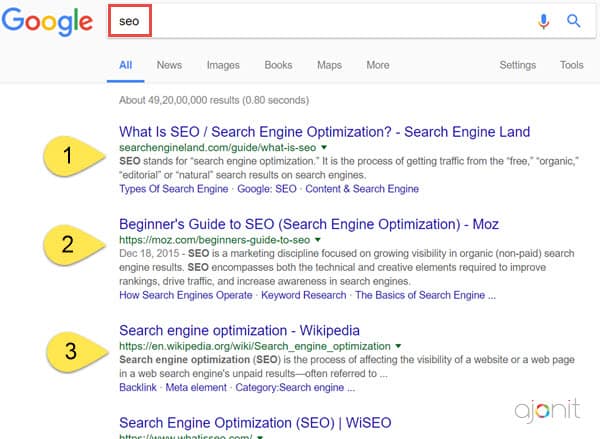How Search Engine Results Pages Are Rated

A search engine results page, also known as SERP, relates to the top page displayed by an engine when a user requests a search using a keyword search engine. The SERP usually contains three pages – the home page (SERP title), the category (SERP category), and the search query (SERP search). The search query can be displayed on two separate pages in some cases, but this is very rare. The main factor of a SERP is that it contains all the results that the search engine returned in the response for a particular keyword query. In addition, however, the final page may contain additional results like sponsored links and advertisements.
The first SERP usually shows search engine results pages in reverse order. This means they are listed in the reverse order in which they are entered into the search engine. The second SERP usually remains in the same reverse order as the first one. Once the user has entered the query in the search box, the search engine displays all the matches from which the user can choose. For example, if the user is searching for “cupcakes,” she would be shown cakes from all the categories (categories containing “cupcakes” are usually listed first). If the user clicks on any of the cakes listed for a particular category, she will be taken to that web page.
Depending on how the search engines like to categorize data, the search engine results pages might contain one or more of the following types of SERPs: broad, local, regional or global. A search engine results page can have one of these types, but not necessarily. For example, a broad SERP typically lists all the queries that users have entered. This can include internal and external links, but internal links are usually confined to a few keywords.
A local SERP usually includes links to web pages of websites related to the search query. These are typical “deep” linking sites such as Wikipedia, Amazon, Yelp, and Open Culture. However, regional and global search results may have many more deep links to pages from specific locations. For example, a global search engine results page can link to the web pages of any company. This means that a company located in New York can link to web pages about products and services related to New York.
A global SERP often contains a list of sponsored links. This means that a company that has links to many sites may appear high in a global SERP because it has received many outside links. Many companies also use sponsored listings. When a search query is entered into the major search engines like Google, Yahoo, or MSN, a sponsored listing for the companies that appear high in the SERPS is generated. In this case, the company that appears high in the sponsored listings receives payment when someone clicks on one of their links.
A search engine results page that lists sponsored links is called an AdSense listing. In general, an AdSense listing will feature ads from websites owned by companies that provide ads related to the search query. The amount advertisers pay for clicks depends on several factors, including the frequency of clicks and the relevance of ads to search queries. When an advertiser places an ad on an AdSense listing, they will receive payments each time someone clicks on those ads. Google and other major search engines display the cost per click in their search engine results pages.
Search engine results in pages that list the highest number of keywords matching the search query are organic search results. An organic search result is one that provides the most relevant matches to the query entered. In general, a lot of research goes into ranking an organic search result as opposed to one that is developed based purely on a low number of highly targeted keywords. One reason for this is that people who search using highly specific keywords may not be willing to pay for highly targeted ads. Therefore, ads that match the search query for the general audience are generally placed at the top of organic search results.
Search engine results in pages that do not feature any AdSense advertisements are called un-categorized search queries. The ideal type of un-categorized search query would be when people are looking for information without looking for specific information. However, it is not uncommon for people to type in a general search query such as “How To” or “Find me a lawyer.” In these cases, the most important factor for the search engine to assign a high ranking is the query’s relevancy. If a search query has nothing to do with the user’s ultimate goal, the site does not need to feature advertising.



